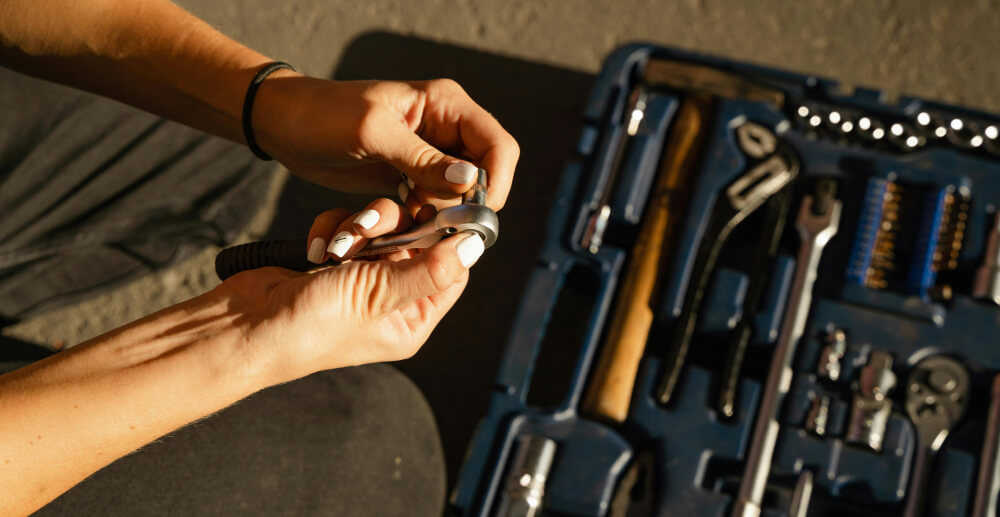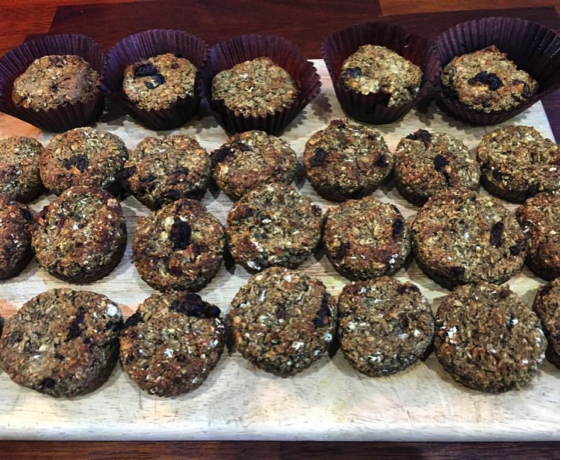Despite being maligned, carbohydrates are how you get energy for your recovery.
We all know that eating right makes a huge difference for our health. It’s common sense: eat well, feel good. But sometimes that isn’t enough of an incentive. How many times have I (and others) bemoaned adding a ton of sugar to our diets in recovery, while excusing it because it isn’t causing the same harm as drugs or alcohol? And while that is true, it doesn’t make diving into the sugar bowl an ideal strategy for fueling our bodies. I want to be clear that I’m not here to lecture you to lose weight or to guilt you about your meal choices! But I am here to tell you how you can boost your recovery by eating right.
Food is fuel, and you need the energy it provides.
Today, I want to focus on the importance of food and the role it plays in recovery. I’ll start first with demystifying carbohydrates. I’m not sure about you, but in my first 18 months of recovery, I was plagued with exhaustion. I wish I had known then what I know now. The reality is that recovery requires an immense amount of energy. Whether you’re recovering through rehab. medication-assisted treatment, 12-step fellowships, or a holistic modality, your recovery takes both mental and physical energy. Add to that the physical needs of your body healing from years of abuse, and you need energy by the bucket load. Research suggests that a significant portion of people with active substance use disorders also have some kind of nutritional deficiency. When we get into recovery, we have to make up for that deficit.
“The reality is that recovery requires an immense amount of energy.”
As well, many of us use sugar to ward off alcohol and drug cravings when we first get sober. In my early recovery, I consumed a diet high in refined carbohydrates, caffeine, and candy. I felt terrible about myself and my body. Since then, I’ve undertaken a nutrition coaching qualification and lost 50 pounds. I now know how to fuel my body right!
Carbohydrates do belong in a balanced diet, in moderation.
When I was a child, the food guide pyramid recommended eating more servings of carbohydrates than any other food group, but thoughts about nutrition have changed since then. Nowadays, we often hear that carbs are bad for you. Many low-carbohydrate (paleo) or extremely low-carbohydrate (Atkins or keto) diets promise fast results. These diets mislead you to think you can eat a diet high in saturated fat, under the guise of it being healthy because it cuts out the carbs.
I’m not an advocate of cutting out any food group. I believe in a balanced diet, including all food groups and all fats. An optimal diet is one that includes healthy carbohydrates—carbohydrates with a low glycemic index (GI). My advice is to eat unprocessed carbohydrates (low GI) that are high in fiber. These foods are digested slowly, so they’ll help sustainably control your energy levels. Low GI carbohydrates include whole oats, brown rice, legumes, nuts, bran, dried beans and peas, barley, dark green leafy vegetables, and root vegetables (with the skin on). If you want to eat more processed carbohydrates (white potatoes, white breads, pasta, cereals, and packaged oats), try to do so within 60 minutes of intense exercise. This allows them to quickly replenish your carbohydrate stores.
Food is to fuel your body well and to be enjoyed. I know that for many people, eating better just seems so difficult that they stick with what they know … even if that’s not the best for them. So, here’s one of my favorite simple, healthy recipes for a high-fiber, whole-grain breakfast. It’s super easy to make and will keep you full and fueled all morning until lunch. Enjoy!
Workit Health Liv’s Recovery Kitchen Berry Breakfast Balls
Makes about 20 servings. Keep in an airtight container in the refrigerator for a week.
Ingredients
- 400g (about 4 cups) whole oats
- 100g (about 3/4 cup) raisins (or other chopped dried fruit or dried berries)
- 50g (about 3 Tbsp) smooth peanut butter (use organic)
- 50g (about 1/2 cup) desiccated coconut
- 3 tbsp. maple syrup
- 2 tbsp. melted coconut oil
- 2 scoops hemp or pea protein powder
- 400-500ml (about 1 3/4 – 2 cups) boiling water
Method
-
Preheat oven to 350. Mix the oats, raisins, oil, desiccated coconut, peanut butter, maple syrup, and protein powder in a large bowl.
-
Gradually stir in 400-500ml boiling water until thick.
-
Use an ice cream scoop or large dessert spoon to create about 20 balls on the baking tray.
-
Cook for 25-30 minutes, or until brown on outside.
-
Allow to cool completely.
- Store leftovers in an airtight container.





